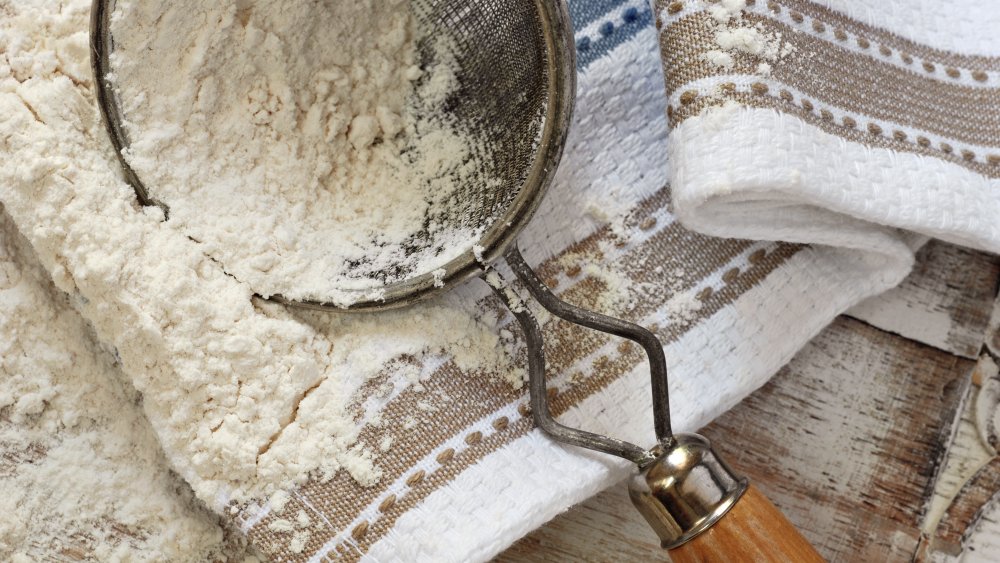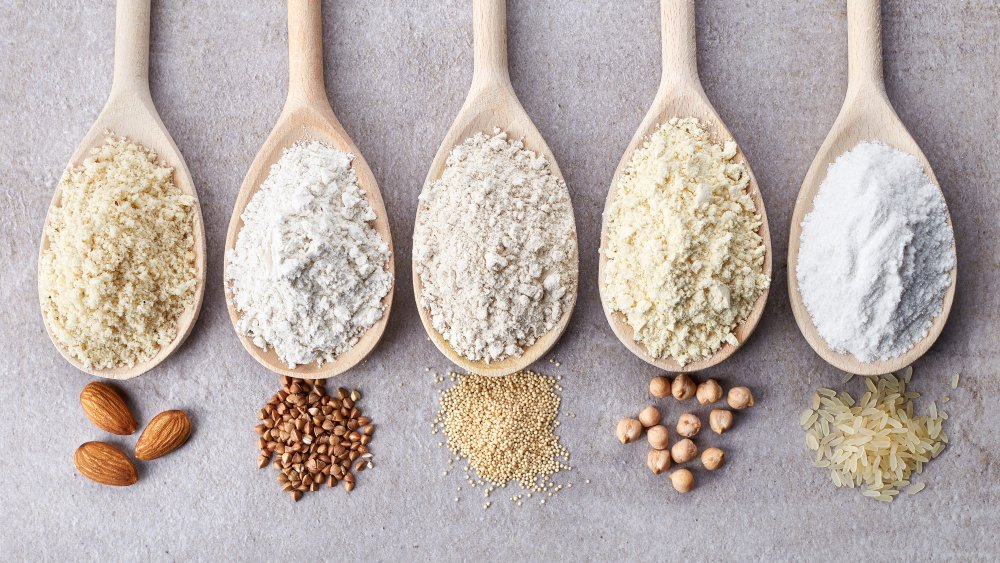Here's What You Can Substitute For All-Purpose Flour
Just as its name suggests, all-purpose flour is one of the most-used types of flour when it comes to cooking and baking all kinds of recipes. Sometimes, unfortunately, the bag runs a little short or you run out of all-purpose flour in the pantry (or it's sold out at the store). Luckily, there are a few substitutes you can use in place of all-purpose flour (via The Kitchn).
If you have another type of flour in the pantry, that will most likely be your best bet for substitution. Flours like whole wheat, bread flour, and cake flour can be used instead of all-purpose if need be. It is, however, important to keep in mind the changes to your recipe each of the different kinds of flour will cause. For example, whole wheat flour is more dense, so whatever you are cooking will lose some of its airiness or lightness (via Better Homes & Gardens).
The best substitutes for all-purpose flour
Cake and pastry flour are the best alternatives to all-purpose flour in baking because it is very finely-ground and light. Cake or pastry flour can also be used in an equal amount to all-purpose flour in the recipe, so it is a no-brainer when swapping it in.
Whole wheat flour is another good substitute as we mentioned, but if you don't want the recipe to get too dense, you will need to add in white flour too. Many people opt to use a half and half blend of whole wheat and all-purpose, white, bread, or cake flour for baked goods. For baked goods like quick breads and cookies, use ⅞ cup of whole wheat for every cup of all-purpose flour.
Other alternatives like almond flour and coconut flour act differently from all-purpose flour when cooking or baking. That's why it is best to find a recipe that caters specifically to almond or coconut flour — perhaps you can find one that is similar to what you wanted to bake with all-purpose flour. Do not try to substitute one into your favorite recipe in place of all-purpose flour because the result just won't be the same.

